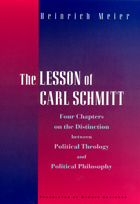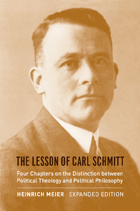3 books about Brainard, Marcus

Jews and Other Germans
Civil Society, Religious Diversity, and Urban Politics in Breslau, 1860–1925
Till van Rahden
University of Wisconsin Press, 2008
Jews and Other Germans is the first social and cultural history to probe the parameters of Jewish integration in the half century between the founding of the German Empire in 1871 and the early Weimar Republic. Questioning received wisdom about German-Jewish assimilation and the pervasiveness of anti-Semitism in Imperial Germany, van Rahden’s prize-winning book restores some of the complexity and openness of relations between Protestants, Catholics, and Jews before World War I.
Closely analyzing the political, social, and cultural life in a major German city, van Rahden shows that Jews were a part of a broad urban community that encompassed diversity within unity, at once offering them a large measure of equality while permitting them to remain meaningfully Jewish. Jews and Other Germans also substantially revises the chronology of anti-Semitism in Germany, showing that Jews only began to experience exclusion from Breslau’s social world during World War I.
Yet van Rahden not only illuminates Breslau’s multicultural fabric; he also tells the story of this remarkable city as one of cultural and religious conflict and coexistence. Recounting the experiences of Jews, Protestants, and Catholics within a single narrative, he offers a critical intervention into scholarship on liberalism and civil society in nineteenth- and early twentieth-century Europe.
[more]

The Lesson of Carl Schmitt
Four Chapters on the Distinction between Political Theology and Political Philosophy
Heinrich Meier
University of Chicago Press, 1998
This book is the culmination of Heinrich Meier's acclaimed analyses of the controversial thought of Carl Schmitt. Meier identifies the core of Schmitt's thought as political theology—that is, political theorizing that claims to have its ultimate ground in the revelation of a mysterious or supra-rational God. This radical, but half-hidden, theological foundation unifies the whole of Schmitt's often difficult and complex oeuvre, cutting through the intentional deceptions and unintentional obfuscations that have eluded previous commentators.
Relating this religious dimension to Schmitt's support for National Socialism and his continuing anti-Semitism, Meier compels the reader to come to terms with the irreconcilable differences between political theology and political philosophy. His book will give pause to those who have tended to gloss over the troubling aspects of some of Schmitt's ideas.
With editions in German, French, Italian, and now English, Meier's two books on Schmitt have dramatically reoriented the international debate about Carl Schmitt and his significance for twentieth-century political thought.
"Standing far above the rest . . . is Heinrich Meier's new study, Die Lehre Carl Schmitts, which covers all of Schmitt's writings. . . . Meier's work has forced everyone to take a second look at the assumptions underlying Schmitt's better-known writings and reconsider some that have been ignored."—Mark Lilla, reviewing the German edition in The New York Review of Books
Relating this religious dimension to Schmitt's support for National Socialism and his continuing anti-Semitism, Meier compels the reader to come to terms with the irreconcilable differences between political theology and political philosophy. His book will give pause to those who have tended to gloss over the troubling aspects of some of Schmitt's ideas.
With editions in German, French, Italian, and now English, Meier's two books on Schmitt have dramatically reoriented the international debate about Carl Schmitt and his significance for twentieth-century political thought.
"Standing far above the rest . . . is Heinrich Meier's new study, Die Lehre Carl Schmitts, which covers all of Schmitt's writings. . . . Meier's work has forced everyone to take a second look at the assumptions underlying Schmitt's better-known writings and reconsider some that have been ignored."—Mark Lilla, reviewing the German edition in The New York Review of Books
[more]

The Lesson of Carl Schmitt
Four Chapters on the Distinction between Political Theology and Political Philosophy, Expanded Edition
Heinrich Meier
University of Chicago Press, 2011
Heinrich Meier’s work on Carl Schmitt has dramatically reoriented the international debate about Schmitt and his significance for twentieth-century political thought. In The Lesson of Carl Schmitt, Meier identifies the core of Schmitt’s thought as political theology—that is, political theorizing that claims to have its ultimate ground in the revelation of a mysterious or suprarational God. This radical, but half-hidden, theological foundation underlies the whole of Schmitt’s often difficult and complex oeuvre, rich in historical turns and political convolutions, intentional deceptions and unintentional obfuscations.
In four chapters on morality, politics, revelation, and history, Meier clarifies the difference between political philosophy and Schmitt’s political theology and relates the religious dimension of his thought to his support for National Socialism and his continuing anti-Semitism. New to this edition are two essays that address the recently published correspondences of Schmitt—particularly with Hans Blumberg—and the light it sheds on his conception of political theology.
[more]
READERS
Browse our collection.
PUBLISHERS
See BiblioVault's publisher services.
STUDENT SERVICES
Files for college accessibility offices.
UChicago Accessibility Resources
home | accessibility | search | about | contact us
BiblioVault ® 2001 - 2024
The University of Chicago Press









